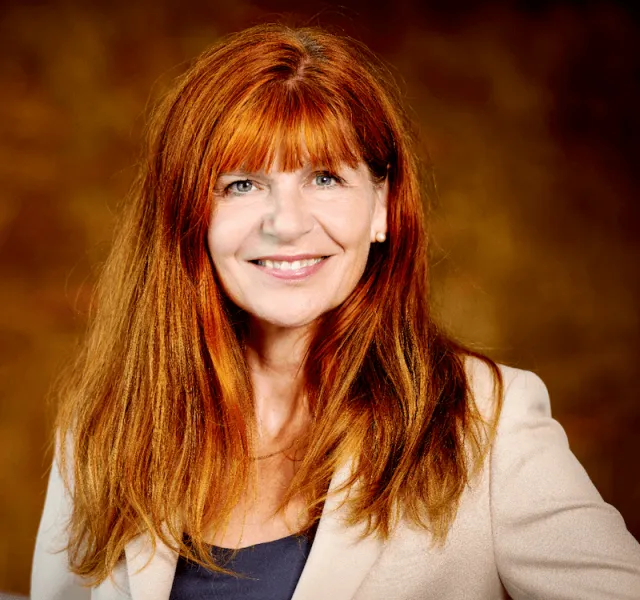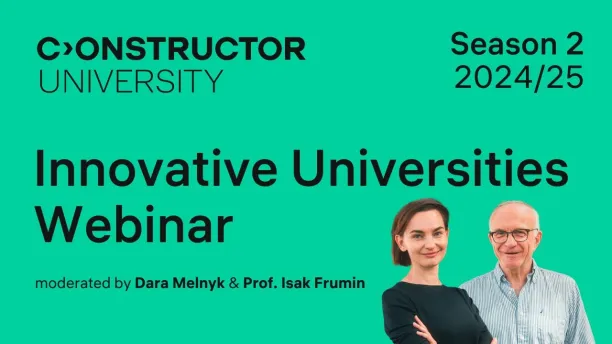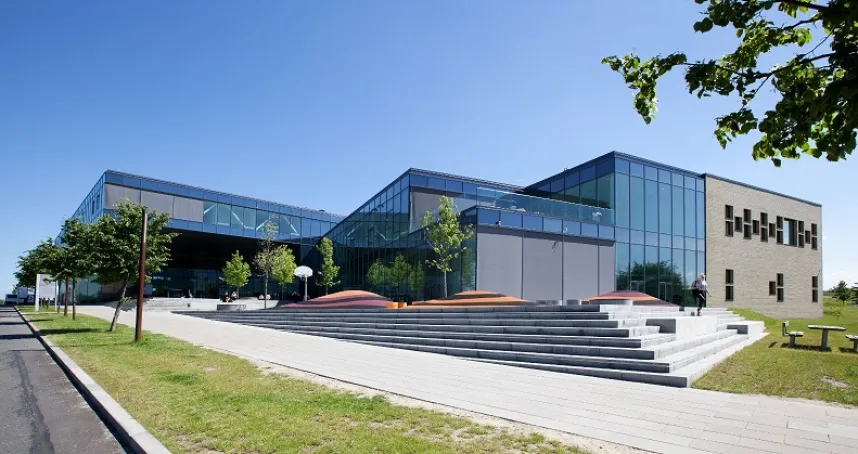Roskilde University: A reform university in the 21st century
This webinar is a part of an Innovative Universities Global Webinar Series.
Roskilde University (RUC) was established in 1972 to challenge academic traditions and to experiment with new ways to create and acquire knowledge. The university shares a common pedagogical approach and philosophy: Problem-oriented Project Learning (PPL) and is characterized by an interdisciplinary approach and a strong engagement in society and the world around us. We believe in freedom of thought, democracy, tolerance, and development.
In this talk, the focus will be on the engaged pedagogical approach, and the effort to profile an alternative approach in a norm-based educational landscape.
Speakers

Dr. Hanne Leth Andersen, Rector at Roskilde University
- Hanne Leth Andersen is Rector and Professor of University Pedagogy at Roskilde University, where she has served since 2010.
- She is an education expert with extensive experience in strategy and international consultancy, having held leadership roles at Aarhus University and Copenhagen Business School.
- She serves on several boards and official committees, including as chair of the Danish Universities' Education Policy Committee, and has participated as an expert in international evaluation panels in Finland, France, and Norway.
- She has authored more than 130 scientific articles in Danish and international journals, along with several monographs, focusing on education, leadership, quality assurance, evaluation, language, and culture.
- She has broad experience in supervision, assessment, peer review, and editorial work and is a sought-after lecturer and panelist in Denmark and internationally.
Key Takeaways
Dara Melnyk:
- As an innovative institution, you have to keep coming up with new ideas to truly stay innovative (a look at RUC's news page can show how it is done!). This is something Professor Andersen shared about RUC's objectives, but it also echoes what I have heard in other conversations with innovative universities: if you are good enough, other universities will start copying you, and you will cease being distinct. Therefore, the brighter you shine, the more noticeable you are, the more effort you should put into reimagining yourself.
- For a long time, I have thought that the renaissance of liberal arts, observed across through Europe (we have looked at three European cases within our webinar: University College Maastricht, Amsterdam University College, and University College Freiburg), has never made it to Nordic countries. But, apparently, that hasn't been entirely correct, as the tradition of small-group learning and critical thinking has landed in Danish reform universities, such as RUC, too. A takeaway (or, shall I say, a reminder)? Pedagogy is not in the name.
- RUC has retained its split into 50% of Problem-oriented Project Learning (PPL), the university's proprietary methodology, and 50% of teaching. Professor Andersen explained the role of supervisors in both instances. Within PPL, students take the lead, but within teaching, supervisors do. A lesson? Supervisors' (instructors', faculty's, ...) role does not have to be rigid and can be defined by context.
Isak Frumin:
- Grades for individuals are not the center of the universe here—collaboration is. At Roskilde University, students don’t just sit exams; they tackle real-world challenges through problem-based learning (PBL).
- And the university makes it very clever—not just with good intentions, but also with well-thought-out technology.
- I’m afraid that it’s quite difficult to be a professor there because professors don’t just teach; they co-create knowledge with students.
- What I really like is, indeed, the appetite for innovation. The university challenges the traditional concept of academia. From its open campus design to its project-driven curriculum, every aspect of the university is a statement: innovation isn’t optional—it’s the norm.
- I liked our discussion with Professor Anderson about the difficult relationships between project-based teaching and discipline-based teaching. I don’t think we resolved this issue, but we definitely have to continue this conversation.
Resources:
- Servant-Miklos (2016) Revolutions & re-iterations: an intellectual history of problem-based learning (a doctoral thesis exploring the history of Problem-Based Learning, include the Roskilde’s proprietary methodology of Problem-oriented Project Learning (PPL))
- Andersen, A. S., & Kjeldsen, T. H. (2015). The Roskilde Model: Problem-Oriented Learning and Project Work. (a book on the pedagogical foundations of the Roskilde’s PPL model and its interdisciplinary, student-directed approach)
- Petersen, E. B., & Sarauw, L. L. (2023). Problem-Oriented Project Learning: Are we doing 21st century skills? (a critical analysis of how Roskilde’s PPL aligns with 21st-century skill development)
Hosts
Image

Professor Isak Frumin
"We designed the 'Innovative Universities' global webinar not merely as conversation, but a one-of-a-kind assembly of forward-thinking scholars poised to reshape the educational landscape. This isn't just about what's new; it's about what's next.”
Image

Dara Melnyk
"Currently, there are no seminars exclusively devoted to innovation in higher education. We want to change that. Our webinar series are meant to give both creators of unusual institutions and idea collectors like us a space to discuss what's possible."
Watch the recording

Event details and reservation

